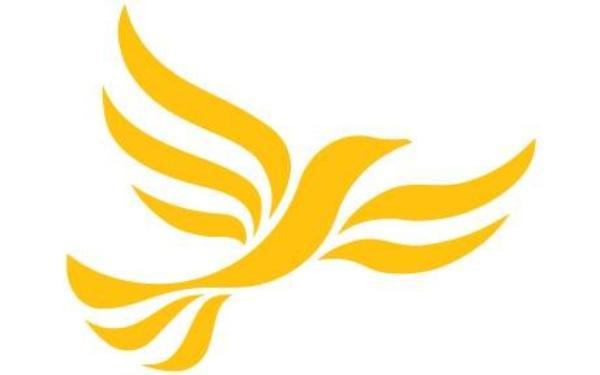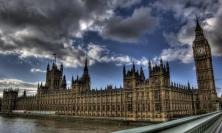In the final days before the 2010 UK General Election, Thinking Faith invites representatives of the Liberal Democrat, Conservative and Labour Parties to demonstrate how their Party recognises the values of Catholic Social Teaching, in particular the concept of the Common Good. Beginning our series, Brent Central candidate Sarah Teather aligns the Catholic concern for the dignity of the human person with the Liberal Democrat arguments for fairness and equality of opportunity.
I have never interpreted the words ‘Thy Kingdom come’ as simply a prayer about providence. Rather the words require something of us, too: to participate in making His Kingdom come.
This election is your opportunity to think about what kind of society you want to build, to reflect on which party and which candidates will work to realise Kingdom values. I think Catholics should feel instinctively drawn to the Liberal Democrats, because I believe it is the party that most closely represents the values of the Catholic faith.
Liberalism is fundamentally an optimistic creed. It thinks well of people; it trusts them with power, it believes in redemption, it works for human flourishing.
At the heart of the Liberal Democrats is a belief in the inalienable rights of each individual human being. All other policies stem from that, from our commitment to social justice and equality of opportunity to the fight for human rights, here and abroad.
A Liberal Democrat would agree passionately with the statement in the 2010 document of the Catholic Bishops of England and Wales, Choosing the Common Good, that the common good is not an aggregate of well-being in society, where the needs of individuals can be superseded by the greater good of the masses. Rather, ‘if anyone is left out, and deprived of what is essential then the common good is betrayed.’ Or to quote Pope Benedict XVI in Caritas in Veritate: ‘the truth of development consists in its completeness: if it does not involve the whole man and every man, it is not true development.’
On a personal level, as a Catholic and a Liberal Democrat politician, here my religious and political beliefs are deeply interwoven. As a Catholic I would speak about the dignity of the human person and the principles of solidarity and subsidiarity; as a liberal I argue for human rights, for fairness and equality of opportunity, and the need to distribute power, down, away from the centre. Choosing the Common Good speaks of the need to promote ‘integral human development’ that rescues people ‘from every form of poverty, from hunger to illiteracy’. The Liberal Democrat constitution explains that the party ‘exists to build a… society… in which no-one shall be enslaved by poverty, ignorance or conformity’.
That commitment to making sure no-one in society is left out runs throughout every policy area for the Liberal Democrats, from our radical plans to make the tax system fairer and take the lowest paid out of paying tax altogether, to our commitment to put £2.5bn into schools serving the most deprived areas. It is also at the heart of our pledge to bring empty properties back into use to create homes for families in need, and to our promise to link pensions with earnings and inflation, immediately, so never again will pensioners fall behind as society grows wealthier.
Just as with Catholic social teaching, sometimes Liberal Democrat beliefs invite controversy and criticism from those who hold the established view about the way things should be done.
Take the economy for example. During the years of boom in the economy, the Liberal Democrats, through Vince Cable, were alone in warning about the dangers of building the economy on a bubble of personal debt, and poorly regulated risky banking practices. The Labour and Conservative parties described these warnings as ‘scaremongering’, but ultimately our stance came to be seen as uniquely prescient.
This position on the economy didn’t come about by accident, but rather because of deeply held beliefs about the nature of the market. Just as the Pope argued in Caritas in Veritate for a free economy, the Liberal Democrats have always believed in open and free markets; but we also believe that markets must be run for the service of people, and not for the service of themselves. We recognise that sometimes markets fail the most vulnerable in society and that’s when Government should step in.
This is why we have argued for banks to be broken up, so that we can protect decent banking services for ordinary customers, and so that the state no longer underwrites the risky gambling practices that nearly brought down the whole system. It is also the reason we have spoken out against short-term buying and selling of shares by speculators that can destablise long-established British companies like Cadburys and lead to take-overs that are neither in the company’s or the country’s long-term interests.
That same view about the market leads us to campaign for social tariffs on energy bills for the least well off. Competition between energy providers has not helped the vulnerable and so Government must step in to prevent the injustice of fuel poverty that leaves many elderly and disabled people unable to afford to heat their home.
But it may be that it is our commitment to see the human face in policy making, often against the prevailing tide, that makes the Liberal Democrats unique. We have always resisted the knee-jerk populism that screams for vengeance in the criminal justice system. Rather, we want a proper balance between punishment and rehabilitation, a justice gained by reducing offending, not by appeasing headlines. That means taking people who are mentally ill out of the criminal justice system. It means prosecuting drug dealers, but treating addiction as a public health problem. It also means a presumption against short-term prison sentences that actually increase re-offending, and a move towards using real community sentences incorporating restorative justice for minor crimes, and making serious offenders in jail work, as part of a comprehensive programme of rehabilitation, education and training.
We have courted controversy too with our campaign to end the detention of children in immigration centres, an issue on which we make common cause with the Jesuit Refugee Service. We continue to campaign for an independent, fair and efficient asylum system that provides sanctuary for those fleeing persecution, and which lets people work to support themselves while they wait for a decision. As do the bishops in Choosing the Common Good, we reject debate about immigration that reduces the issue to a Dutch auction on numbers, but instead believe we should focus on the real costs and benefits to communities of managed migration, in a rational and honest way.
If you believe in the Catholic principles of solidarity and dignity of the person, those principles cannot stop at our shores. It was the Liberal Democrats who led the campaign in Parliament against Guantanamo Bay, who fought against British complicity with torture, and who opposed the illegal war in Iraq. Popular opinion and received wisdom on all of these issues has turned substantially since Liberal Democrats first led the way.
We were alone, too, in fighting to end tax-payer subsidies on arms deals, and a lone voice arguing against the selling of arms to countries which may use them for human rights abuses or to suppress their own people. When Israel mounted its offensive against Gaza at the start of 2009, we called for an arms embargo on Israel. At the time, the Government rejected our calls and refuted our arguments in the most personal and visceral terms. Now, a year later, they are beginning to accept the inescapable truth that equipment we sold to Israel was used in Gaza, in contravention of international law. Government has a duty and a responsibility to ensure that we do not sell British equipment to countries under these circumstances. To do that, we must put in place much closer monitoring of what happens to equipment we sell. And sometimes it means saying no to close allies whose relationships matter to us.
Popular opinion has moved a long way on the environment in recent years. It has always been intrinsic to the Liberal Democrats, as it is to Catholicism, to believe that our duties to the environment are linked to the duties we have to look after one another. Liberal Democrats have long argued that we have a duty to protect the poorest countries from the effects of climate change and to preserve our planet to hand on to our children. For this reason a green thread runs throughout our manifesto. We do not shy away from using green taxes to change behaviour, and are willing to take tough choices, like switching money away from the roads budget to invest in railways, and focusing our efforts to boost the economy around creating new jobs in areas like renewable energy that will help the environment.
Standing up for what is right, particularly in foreign policy, requires politicians to demonstrate the virtue of courage that Choosing the Common Good speaks about. Representative democracy must be more than just following current popular opinion. It requires politicians to lead public debate, and sometimes to do so against a popular tide, using the skills and the platform they have been given to campaign for change, both of policy and of public opinion.
That for me is at the heart of the debate about restoring trust in politics, which is another of the themes in Choosing the Common Good. Restoring trust in Britain’s damaged democratic institutions is going to be the major challenge of the next Parliament. Liberal Democrats have long argued for a renewal in politics, for radical changes to the old way in which politics was done. But there is no doubt that without some deeper change of heart – of the kind the Catholic Church speaks of in its call to virtue – even with the best reforms on offer, there remains a danger that one scandal will be fixed only to be replaced by something slightly different but equally horrifying.
Politicians under the glare of 24-hour news spend an inordinate amount of time trying to second guess how the things they do and say will appear, but spend surprisingly little time self-reflecting. Space is hard to find in the chaotic life of an MP, but it is essential. The greatest danger for politics is that the new Parliament will fill with young new MPs determined to be different but who have spent too inadequate a time reflecting on the human and very ordinary traits that led to the spectacular public failures of their predecessors. The same is almost certainly true of banking, and I dare say in its own way, with different challenges, also for the Church. The challenge for the men and women elected in the next Parliament is to think deeply about their role and their calling, not just to go on as before and pledge to do better.
Nick Clegg, the Liberal Democrat leader, has made cleaning up politics one of his key campaign themes for the General Election. Nick believes the only way to move forward is to put people – voters, electors – at the heart of the political process. It is where they should be, but the disconnect between the elector and power is in many areas profound. The closer those making decisions are to the people they serve, the more chance you have that they will keep their priorities closest in their mind at all times. This is how we tackle the accumulation of power that led to corruption and abuse. We need to get the big money donations out of politics so the power to influence the debate is not confined to the wealthy, and we should end the reality of safe seats, which led politicians to think they could ignore the public, and the public to think that their vote wouldn’t count. And we need to restore Parliament’s ability to hold the executive to account, so MPs can act on voters’ priorities when elected.
A liberal is always suspicious of systems that take power to themselves. The Catholic principle of subsidiarity – that power in a community should be exercised at the lowest and most local level compatible with the common good – finds common cause with the Liberal Democrat call for localism, devolution and accountability. You can only achieve that, however ,by giving people a real say in their local area on how local services like the police and health service are run, by devolving power away from Whitehall and down to local government, and by creating a voting system that is fair, and where every vote matters.
One of the effects of giving power back to Parliament, and away from Government, would be to free MPs to vote with their conscience. We would reduce the influence of the party whips system which is so corrosive to free thinking, and would not allow the Government to pay their whips through tax-payer’s money. We believe that life issues such as abortion, embryology and euthanasia should always be the subject of free votes in parliament. Freedom of speech and conscience is a deeply held liberal principle.
This election could be a turning point for Britain. It has been a difficult few years, but if we make the right choices now, we could emerge from the recession stronger as a country, and more united. You will need to decide which party will best do that. This election is likely to be one of the closest fought elections in decades. If you want the next Parliament to reflect Catholic values for a fairer society that puts people first, you need to make sure you vote for it. I urge you to use that vote for the Liberal Democrats.
Sarah Teather was the Liberal Democrat Member of Parliament for Brent East from 2003-2010, and is now seeking re-election in the new constituency of Brent Central.
The views expressed here do not necessarily represent those of the British Province of the Society of Jesus.
![]() Choosing the Common Good
Choosing the Common Good![]() Liberal Democrats
Liberal Democrats
Also on Thinking Faith:
![]() Conservatives and the Common Good
Conservatives and the Common Good![]() Labour and the Common Good
Labour and the Common Good






